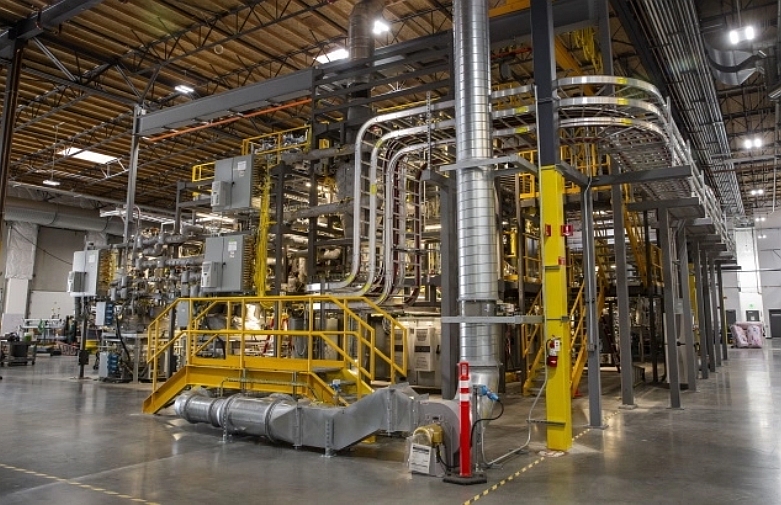Development of molten salt reactor technology for maritime use has taken a step forward with the successful start of pumped-salt operations at a dedicated facility in the US. Core Power, Southern Company and TerraPower are working on the project together.
The project partners see the start of pumped-salt operations as a major achievement, taking the project to bring TerraPower’s first-of-a-kind Molten Chloride Fast Reactor (MCFR) to market into an important new phase.
A project team has previously completed mechanical, electrical and controls verification and commissioned all systems at an Integrated Effects Test (IET) facility installed at TerraPower’s laboratory in Everett, Washington. Chloride salt has now been loaded into the primary coolant salt loops and pumped-salt operations have begun. It marks the start of a multi-month test campaign, which will provide valuable salt operations data and know-how for the MCFR program.
Also read: How nuclear power can be used on ships safely
‘The startup of the Integrated Effects Test is a milestone achievement in the development of the first fast-spectrum molten salt reactor,’ says Mikal Bøe, president and CEO of Core Power. ‘The Integrated Effects Test allows us to collect that crucial last-mile data for a design and build of the Molten Chloride Fast Reactor, and takes the team one step closer to a genuinely unique way to do new nuclear that is appropriate for the commercial marine environment.’
New nuclear can take ocean transport to zero
The project was initiated by Southern Company and TerraPower under the US Department of Energy Advanced Reactor Concepts (ARC-15) award, a multiyear effort to promote the design, construction and operation of Generation-IV nuclear reactors. The project team also includes Core Power, EPRI, Idaho National Laboratory, Oak Ridge National Laboratory and Vanderbilt University.
Also read: Nuclear energy – From perception to reality
Jeff Latkowski, senior vice president for the Molten Chloride Fast Reactor: ‘The Molten Chloride Fast Reactor has the potential to meet the carbon-free needs of hard-to-decarbonise industrial sectors including and beyond electricity. The Integrated Effects Test will help us gather and evaluate data to support the development of our technology, and we are excited to launch pumped-salt operations.’
Bøe adds: ‘New Nuclear for Maritime is the only solution that can take the ocean transport industry to actual zero. It’s the end game of our energy transition and with solid progress being made in building a new nuclear technology that actually works for shipping, we see the momentum continuing to build.’
Also read: Newcleo, Fincantieri and RINA look into feasibility of nuclear marine propulsion








